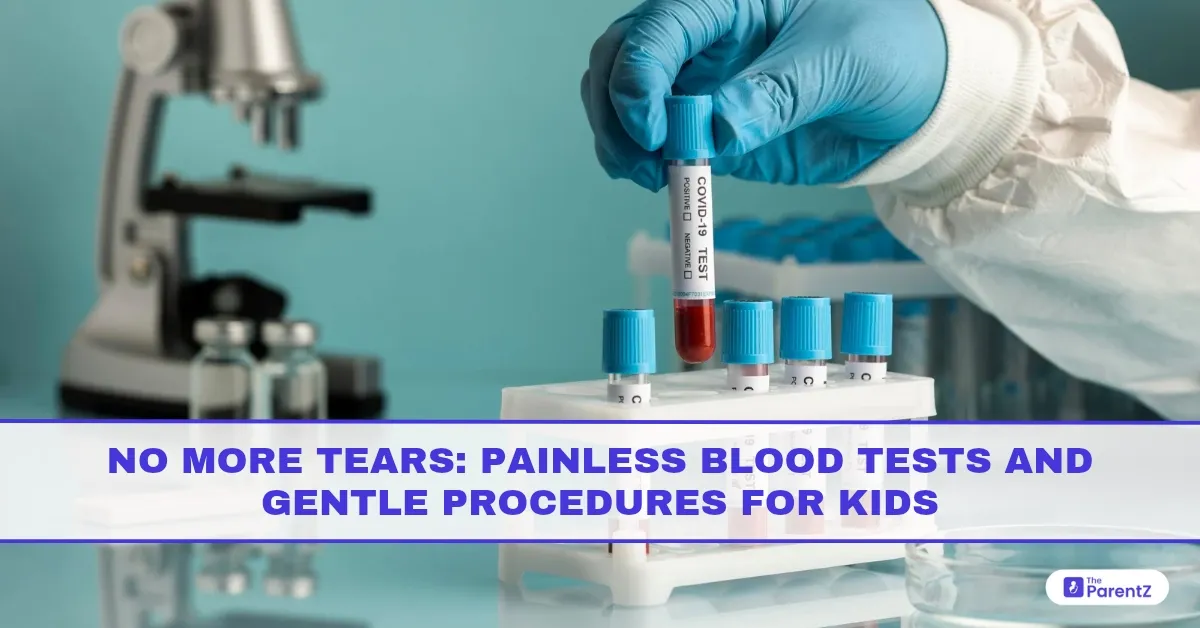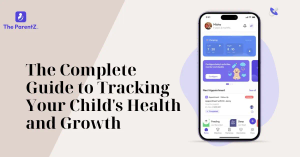It’s 9 a.m., and little Aarav, a bubbly 6-year-old, is due for a routine blood test. As the nurse approaches with a needle, his eyes grow wide, and he clutches his mom’s hand tightly. But this time, something’s different. The nurse smiles, brings out a colorful, vibrating device that gently distracts Aarav, and within moments, the test is over. Aarav barely notices the tiny prick and walks away with a brave smile and a sticker badge that says, “I’m a health hero!”
For generations, blood tests and medical procedures have been a source of anxiety for both children and parents. The image of a child crying in fear or flinching at the sight of a needle is all too familiar. But here’s the good news: modern medicine is evolving, and today, healthcare professionals are finding ways to make these experiences gentler, kinder, and far less painful.
Why Are Kids So Afraid of Needles and Tests?
Before we talk solutions, let’s step into a child’s shoes for a moment.
For most children, medical settings can feel unfamiliar and overwhelming. The bright lights, strange smells, masked faces, and sharp instruments are a recipe for anxiety. Add to that a parent’s own nervousness, and the child senses something is “wrong.”
Dr. Gabor Maté, a renowned physician, reminds us:
“Children are not born afraid. They absorb fear from the environment around them.”
Understanding this helps us shift from “This is how it’s always been” to “How can we make this better?”
The Science of Less Pain: What’s New in Pediatric Procedures?
Here’s where innovation meets empathy. The healthcare world is now embracing child-friendly tools and techniques designed to reduce pain, fear, and trauma in young patients.
Numbing Creams and Sprays
Ever heard of EMLA cream or cold sprays? These topical anesthetics numb the skin before a procedure. A simple application 30–60 minutes before a blood test can significantly reduce pain. Many hospitals and clinics now routinely use these creams for kids, especially during vaccinations and blood draws.
Distraction Devices: Magic in a Box
Devices like Buzzy® or ShotBlocker™ are game-changers.
Buzzy, for example, is a cute, vibrating bee-shaped device that uses cold and vibration to “confuse” the body’s pain signals. When placed near the injection site, it distracts the brain—so the child barely feels the needle.
Smaller, Finer Needles
Modern blood collection systems use ultra-thin needles, specially designed for kids. These cause less tissue damage and make the process smoother.
Quick Collection Techniques
Trained pediatric phlebotomists now use vacutainers and micro-collection tubes that allow for faster, more efficient blood collection, often in a single, swift attempt.
Gentle Procedures Beyond Blood Tests
It’s not just about needles! Many routine medical procedures have become kinder and easier:
Ear Examinations
No more cold, poky instruments. Digital otoscopes with child-friendly lights and videos distract kids during ear exams.
Vaccinations with Fewer Tears
Combination vaccines (like the 5-in-1 pentavalent) reduce the number of injections a child needs. Plus, oral vaccines like the rotavirus vaccine offer protection without needles at all.
Painless Dental Treatments
Modern pediatric dentists use laser tools, air abrasion, and even laughing gas (nitrous oxide) to make dental work nearly pain-free.
Real-Life Parents, Real-Life Wins
When little Meera needed a blood test at age 5, her parents, Ritu and Karan, were dreading the experience. But their pediatrician suggested using a numbing cream before the appointment and brought out Buzzy during the test. Ritu recalls:
“Meera was so fascinated by the little bee that she barely noticed the needle. She even asked if she could have Buzzy at home!”
In another example, Arjun, a dad from Pune, shares:
“My son had a chronic condition requiring frequent blood tests. We used to struggle every time. But once we started using distraction techniques—like watching videos or singing his favourite song during the test it became so much smoother. We also worked with a child-friendly lab that made all the difference.”
Simple Tips to Ease Your Child’s Fear
Even without fancy gadgets, there’s a lot you can do as a parent to make procedures less scary:
Talk It Through
Explain the procedure in simple, positive language.
Instead of: “It’s going to hurt a little”, try:
“The doctor will do a small pinch to check how strong your body is!”
Be Calm, Be Present
Your child picks up on your emotions. If you stay calm and reassuring, it helps them feel safe. Deep breaths help!
Bring Comfort Objects
A favourite toy, blanket, or even a lollipop can be a powerful distraction and source of comfort.
Use Visualisation or Storytelling
Ask your child to imagine they’re a superhero getting a power boost or that they’re going on a magical journey during the procedure.
Celebrate Bravery
A sticker, a small treat, or just lots of praise afterwards reinforces the idea that they did something amazing.
The Bigger Picture: Raising Resilient, Healthy Kids
By making medical procedures gentle and trauma-free, we’re not just avoiding tears in the moment, we’re building lifelong positive associations with healthcare.
A child who feels respected, comforted, and involved in their care is more likely to grow into an adult who doesn’t fear doctors, who gets regular check-ups, and who values their health.
As Dr. Maya Angelou famously said:
“They may forget what you said, but they will never forget how you made them feel.”
Let’s give our children the gift of feeling safe, strong, and brave even when they’re facing a needle or a test.
The Takeaway: A Future Without Fear
Thanks to modern tools, thoughtful techniques, and a little creativity, blood tests and medical procedures don’t have to be a battle. With a bit of preparation and empathy, we can turn a moment of fear into one of empowerment, a story your child will tell with pride:
“I was brave, and I did it!”
So, the next time your child needs a test or procedure, remember:
A little preparation, a little patience, and the right tools can make a big difference.





Be the first one to comment on this story.